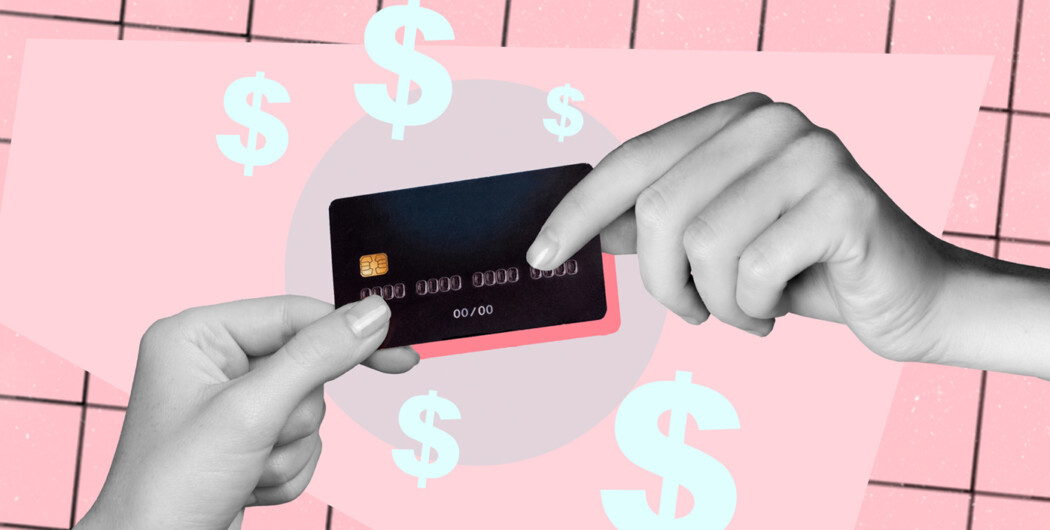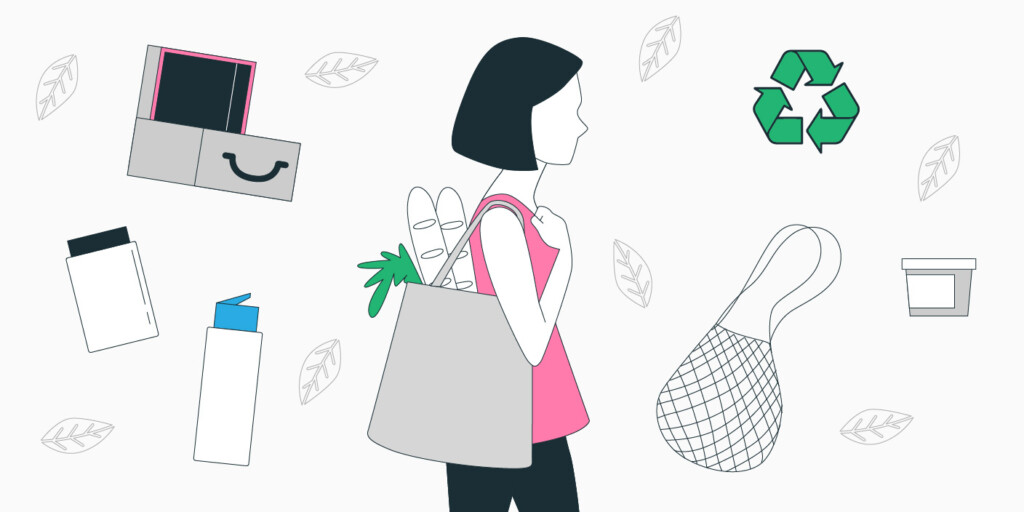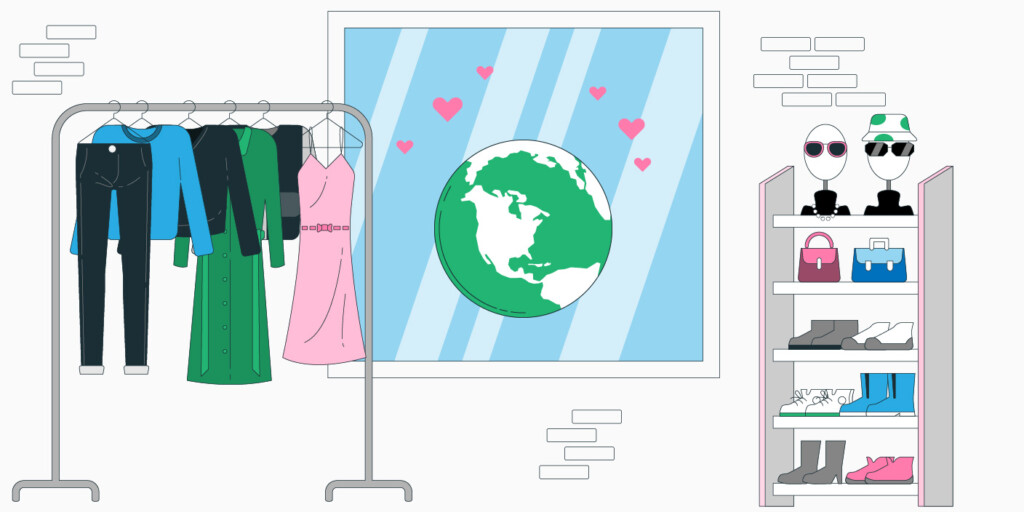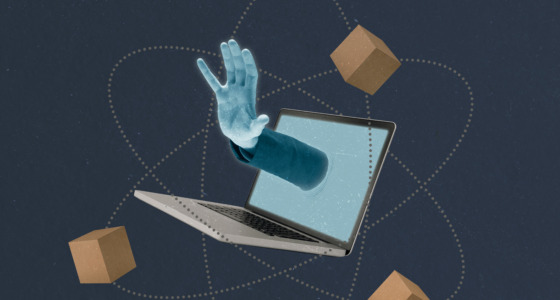

Collectively, consumers can make a positive impact when shopping, but it’s not yet as common as it could be. Countries like Denmark, Sweden, and Norway are often recognized as being at the forefront of sustainable and ethical consumption practices. By the way, Norway is the first country in the world where electric cars outsold traditional cars. In 2020, electric cars accounted for over 54% of all new car sales in the country.
That said, conscious consumerism is too broad a concept to narrow down to EVs or even environmentalism alone. Let’s delve deeper into the topic of conscious consumerism and explore how to make informed choices when shopping.
What it means to be a conscious consumer

A conscious consumer is someone who takes responsibility for their purchasing decisions.
Being a conscious consumer means making intentional and informed choices about what you buy and consume. It means taking into account the social and environmental impact of your choices. But it is not easy. It requires a willingness to educate oneself about the impact of consumption choices and an incredible commitment to making a change.
The term has been around for several decades, although it has gained more prominence in recent years. In the past, it was discussed only by environmentalists and academics. They were studying and promoting the idea of conscious consumerism long before it entered the wider circles.
Now, policymakers and regular people are joining the discussion. Some are already taking action. For example, some governments are introducing regulations to reduce waste, while others are providing incentives for companies to adopt sustainable production practices.
Why is now the era of a conscious consumer?
There are several factors driving the popularity of conscious consumerism in recent years:
- Increased awareness of environmental and social issues: The rise of the internet and social media means easy access to information, which, in turn, allows people to learn quickly and easily. The general population is becoming aware of how everyday choices affect the world.
- Changing cultural values: There is a greater emphasis on living a meaningful and purposeful life. This explains the shifting focus toward well-being, community, and sustainability.
- The rise of conscious businesses: In response to consumer demand, many businesses are now prioritizing values shared by their target audience. Consumers support companies that are making a positive difference, and these companies see rising revenue.
Key components of conscious consumerism practices

If you want to be a conscious consumer or support conscious consumerism as part of the corporate world, consider the following:
Education and awareness
In a world where information is readily available at all times, conscious consumers should be taking advantage of this.
Education and awareness help consumers understand the impact of their purchasing power. For example, by staying informed about global issues (climate change, human rights, and animal welfare) and researching the carbon footprint of products, they become more equipped to make better choices.
Ethical and sustainable production
So, you have information about how a product is made and where it comes from. This is one piece of the puzzle about the social and environmental implications of its production. It’s good when products are made from environmentally friendly materials, like organic cotton, bamboo, or recycled plastic.
Another consideration is whether the company prioritizes fair labor practices and treats its workers with dignity and respect.
Waste reduction
Conscious consumers opt for products that are minimally packaged and choose reusable bags and containers instead of single-use plastic. They also ensure that they recycle and compost waste properly. Overall, they try to divert waste from landfills as much as possible.
Mindful consumption
Mindful consumption is all about carefully considering your needs before making a purchase. If you’re compelled to buy something, you may actually need it. In other cases, you may be falling into the temptation of impulse buying.
Conscious consumers shouldn’t fall prey to fast fashion and disposable trends. Instead, they should prioritize high-quality products that are made to last. Not only does it minimize their environmental footprint, but it also saves them money in the long run.

What you need to know about greenwashing
Some companies use greenwashing as a deceitful marketing tactic to mislead consumers. These companies want people to believe that their products are environmentally friendly and overall sustainable when they are not.
Greenwashing, a term coined by environmentalist Jay Westerveld, is when a company spends more time and money on advertising its eco-friendliness than actually reducing its environmental impact. The term was born out of a moment of irony and frustration. Westerveld was inspired by the Save the Towel movement in hotels, which encouraged guests to reuse their towels but accomplished nothing.
This is not only misleading but can also have real negative consequences. For instance, the infamous People Do campaign by Chevron advertised the company’s environmental dedication. But in reality, it was consistently violating several environmental laws (Clean Air Act and Clean Water Act) and spilling oil into wildlife refuges.
Chevron’s greenwashing tactics are not unique in the corporate world. Chemical giant DuPont also had a flashy advertising campaign, and this once featured marine animals dancing in unison to Beethoven’s Ode to Joy. But the reality was far from joyous – that same year, DuPont was the biggest corporate polluter in the United States. This serves as a stark reminder that conscious consumers need to be vigilant.
What to do if you’re new to conscious consumerism
If you’re clueless about where to start, choose specific brands that align with your values. You can start with a small selection of companies; for example, one for each major category – clothes, furniture, transport, personal care, etc. Then you can work your way up.
There are tons of resources online highlighting companies that have a sustainability mission, use eco-friendly materials, and prioritize fair labor practices. Let’s say you pick ten companies that you’re confident in. As you support them and buy their products, you’ll slowly be learning what makes them “good”. With time, you’ll be able to recognize sustainable products without consulting the internet – just from experience and practice.
Keep in mind that the conscious shift should be taken gradually rather than suddenly. Making drastic changes to your consumption habits can be overwhelming, but most likely, you’ll simply give up trying. After all, sustainability matters if you stick to it in the long run.
Examples of conscious brands

There is not enough time and space for this article to list all companies that pledged to be more sustainable and ethical in their practices. Nevertheless, let’s go through a few examples:
- Patagonia is a clothing brand that uses eco-friendly materials and has implemented initiatives to reduce its carbon footprint.
- Allbirds produces shoes from sustainable materials, such as recycled plastic bottles and merino wool.
- The Body Shop uses ethically sourced ingredients in its beauty products and recycled materials in packaging.
- Seventh Generation uses plant-based and biodegradable ingredients in their household cleaning and personal care products.
- Beyond Meat creates plant-based meat alternatives that are designed to look, cook, and taste like real meat.
- Reformation is a clothing brand that has initiatives to reduce waste, such as using deadstock fabrics and repurposing vintage clothing.
The limits of conscious consumerism
One common criticism is that the responsibility for creating a sustainable future should not fall solely on consumers. Critics argue that without systemic changes and regulation, conscious consumerism is nothing more than a band-aid solution to larger, more complex issues. Perhaps there should be a bigger emphasis on corporations and governments.
Some also argue that conscious consumerism is a privileged choice. It assumes that consumers have the time, resources, and knowledge to research and select products that align with their values. For example, choosing organic produce or ethically-made clothing. Besides, not everyone has equal access to information.
Despite these criticisms, there are many who believe that every small action can make a difference in the long run.
Does it actually matter if people consume consciously?
Yes, and it’s a necessary shift in the modern approach to consumption. With the current state of the planet, it’s becoming increasingly clear that people cannot continue consuming at the same rate. At least if they don’t want to face serious environmental and social consequences.
There are even personal benefits. When you make intentional choices about what you buy and consume, you start to feel more in control of your life. It also reduces feelings of guilt or anxiety related to the impacts of your choices. By choosing products that align with your values and beliefs, you can feel a sense of satisfaction and purpose.
A checklist for a conscious consumer
To help you become a more conscious consumer, here is a checklist of what you should go through when making purchasing decisions:
- Take the time to research the environmental and social impact of the products you buy. Look up the company’s carbon footprint, labor practices, and animal welfare.
- Make an effort to choose products from sustainable materials (renewable and biodegradable like organic cotton, hemp, bamboo, tencel, cork, wool etc.). If you need to use plastic, recycling and repurposing is the way to go.
- Look for certifications and labels – like Fair Trade, Certified B Corporation, and Organic – that are relevant to your region.
- Opt for products with minimal packaging, adopting reusable bags and containers. When done with the product, taking the recycling and composting route.
- Resist the urge to impulse buy.
- Support businesses that share your values of sustainability and social responsibility.
- Educate others about the importance of conscious consumerism and its impact on the world.
This is not an exhaustive list, so feel free to add your own points that align with the overall goal.
Concluding thoughts
Conscious consumerism is undeniably gaining momentum. It’s safe to assume that more people will be informed enough to prioritize sustainability and social responsibility when making purchasing decisions. So, businesses need to adapt.
If you’re at crossroads about implementing more sustainable practices, the best places to start are reducing waste, using renewable energy, and promoting ethical labor practices. You can also turn your attention to the circular economy and impact investing.
On a global scale, environmental and social challenges will probably persist, with climate change, resource depletion, and inequality being the key problems. But a more equitable and sustainable future is possibly within reach. It just needs enough people to come together and work towards this common goal.
Sources:
Conscious consumerism: Understanding the dilemmas of today’s consumer, Deloitte
Informed decision-making is changing the shopping journey, Think With Google
Rise of the inclusive, sustainable consumers, McKinsey
Do consumers care about sustainability & ESG claims? McKinsey and NielsenIQ











